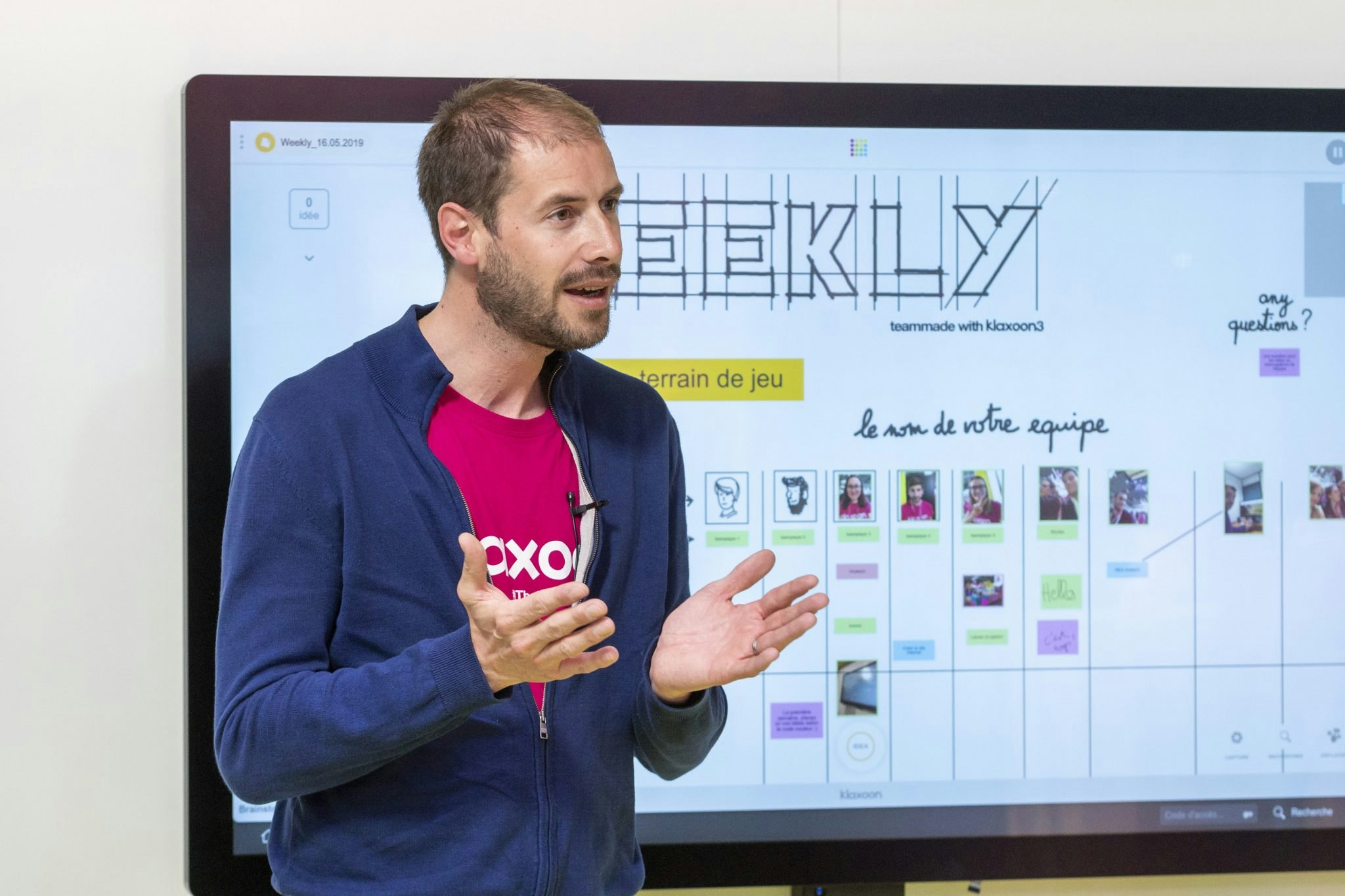Beyond the winners and losers of Covid-19, there’s one thing all companies lost in 2020: their ability to draft multi-year strategies and plan methodically for the long-run.
As a result, a management revolution is underway in the post-Covid world — and leadership methods, as well as corporate tech tools, need an upgrade to fit, says entrepreneur Matthieu Beucher.
“Full-year and multi-year plans are dead,” says Beucher, the founder and chief executive of startup Klaxoon. “Now leaders have to manage on a weekly basis, and make strategic decisions daily.”
Beucher’s company Klaxoon makes virtual white boards and other software to rejig planning, boost teamwork and revamp corporate meetings. It’s become one of France’s 40 most promising startups.
That not just due to Covid. Over the past decade, Beucher’s idea for technology that helps people collaborate gained momentum as notions of horizontal decision-making and “agile” project management became fashionable, first at startups and later at all sorts of companies.
Now, methods and pace are evolving again as the digital transformation accelerates and the on-and-off, unpredictable constraints of Covid-19 force change.
“What’s really different in the current context is that all companies are forced to change pace, because the environment is constantly changing and we have little to no control,” says Beucher. “Companies are readjusting, rethinking and revamping their vision and products on a day to day basis.”
“In this new world, having the traditional two hour team meeting each week just isn’t sustainable.”

Managers in survival mode
Overnight changes like the generalization of remote work have shed a light on several outdated tools and methods. Traditions like the yearly performance review have never seemed so inadequate.
With no manual on managing teams through Covid, leaders have been learning on the job. Managers are trying new ways of communicating and running meetings, as well as adopting new technology to help, Beucher says.
“Some managers come to us in survival mode: their inbox is exploding, they have no way of picking up on weak signals from employees they never see anymore amid remote work,” he says.
Klaxoon’s offering includes a white board that employees can update over the course of a project with colorful post-its and brainstorming tools like Venn diagrams and flowcharts. Visuals are key and new participants can join at any time and should be able to catch up just by looking at the board.
Feedback from managers is generally that they’ve cut back the average meeting time by a factor of three by using Klaxoon’s virtual white board, and found that those who tended to sit quietly in meetings are more active participants, says Beucher.
The startup has a partnership with Microsoft and has built its product to integrate with software including Teams and rival video conferencing platform Zoom. Microsoft has started deploying Klaxoon in house too, for its own employees, says Beucher.
The future of leadership
But for Beucher, tweaks in management styles have much deeper roots, and leadership will undergo profound changes still in 2021.
“For too long, being a manager has been about pushing or pulling the team to move forward,” says Beucher. “More and more, we’ll see management roles evolve towards different postures that are more relevant in an unpredictable environment.”
Increasingly, leaders will have a role as a person of influence, he says. Managers will bring more to the table by positioning themselves as observers who ask the right questions, are on the lookout for weak signals and stand ready to step in at the most relevant times, Beucher says.
In short, leaders will need to act more like coaches and do more “talent management” and less micro-managing and precise planning if they’re going to guide their teams and companies through Covid-19 and beyond.
“It’s not just startups but all companies now that are changing and adopting new methods and new technologies,” says Beucher. “All of it with one target in mind: constant iteration and readjustment.”


